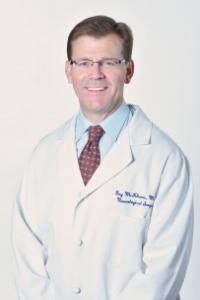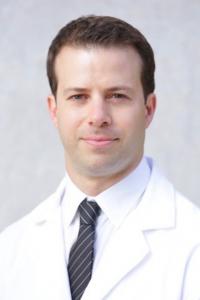Columbia Neurosurgery Inspires at American Epilepsy Society Annual Meeting
Advancing Knowledge for Epilepsy Patients and Their Families
Last week, our faculty members, Dr. Guy McKhann, Dr. Brett Youngerman, and Dr. Brian Gill, traveled to the Annual American Epilepsy Society (AES) Meeting in Orlando. The AES "is a community of physicians, scientists, advanced practice providers, nurses, psychiatrists, psychologists, engineers, pharmacists, advocates, and other professionals engaged in understanding, diagnosing, studying, preventing, treating, and curing epilepsy." Between our neurosurgeons, epilepsy neurologists, and neuropsychologists, Columbia was very well represented at the meeting.
During Friday's opening sessions, Dr. McKhann co-moderated the session on "Stereoelectroencephalography (sEEG): The SEEG Methodology Applied to Pre-Frontal Epilepsies," discussing the use of the implantation of electrodes into the brain to better localize the seizure focus where a highly complex group of frontal lobe epilepsies, poorly understood, but potentially curable with appropriate localization and treatment.
On Saturday, Dr. Brett Youngerman was a panelist on "Career Strategic Planning - How to Map Out Your Career." Dr. Youngerman discussed how, as an epilepsy professional, he utilizes strategic planning as a critical skill to enhance his career success and satisfaction. This workshop-style format allowed audience members to practice developing strategic planning skills through real-world scenarios.
In parallel, on Saturday, Dr. McKhann returned to the stage where he served as co-Chair for the "Epilepsy Surgery Skills Workshop: Techniques and Clinical Scenarios," a full-day practical workshop to review technical details, indications, limitations, and safety profiles related to the most common surgical procedures associated with medically refractory epilepsy. Key topics included temporal lobe surgeries, extra-temporal resections, invasive monitoring methods, and hemispheric surgeries. As part of the workshop, he presented the technical nuances of temporal lobe epilepsy surgery in patients with normal brain MRI scans and those with a lesion such as a brain tumor or vascular malformation causing their epilepsy. Dr. McKhann commented, "This course, the first of its kind at AES, was a huge success. We brought experts from around the world to share their epilepsy surgical strategies. We will certainly do the course again, as nearly 200 potential attendees could not be accommodated."
Following on Sunday, Dr. McKhann served as Chair for the "Neurosurgery Symposium: Surgical Controversies in Temporal Lobe Epilepsies," a review of current state-of-the-art methods and procedures related to epilepsy surgery, with particular attention to temporal lobe surgery. The expert's controversial topic discussions focused on the optimal approach for mesial temporal lobe epilepsy, the application of invasive monitoring and the appropriate method for neuromodulation in temporal lobe epilepsies.
Later in the day, Dr. Youngerman attended meetings of the American Epilepsy Society Medical Practice Committee, where he is working on efforts to reduce barriers to comprehensive care and epilepsy surgery for patients. This was followed by a meeting of the International League Against Epilepsy Big Data Commission, where Dr. Youngerman's research is contributing to the development of common data models to improve the pace of multi-center research in epilepsy.
Finally, on Tuesday, Dr. Brian Gill presented in the session "Tumor-Related Epilepsy (TRE): Invasive Monitoring in Tumor Related Epilepsy: Why, When, and How", where Dr. McKhann also served as co-Chair. Dr. Gill discussed the latest scientific discoveries of how brain tumor cells interact with the surrounding brain to generate seizures and ways that we may be able to target epilepsy in these patients. Dr. Gill reflected, "It was a great meeting, and I was happy to participate in the tumor-related epilepsy special interest group, where I had the opportunity to share my thoughts and research on the mechanisms behind the disease and learn from others in the field."
The team immensely enjoyed their time at this year's AES meeting as an opportunity to connect across the many disciplines that factor into the surgical approach to care for our patients. A bonus is always the ability to share skills, techniques, and knowledge with the next generation of upcoming neurologists and neurosurgeons as this dynamic field continues its incredible innovation. We are proud to partner with the AES in our mutual dedication to advancing knowledge and supporting evidence-based clinical practices to improve epilepsy patient outcomes.




